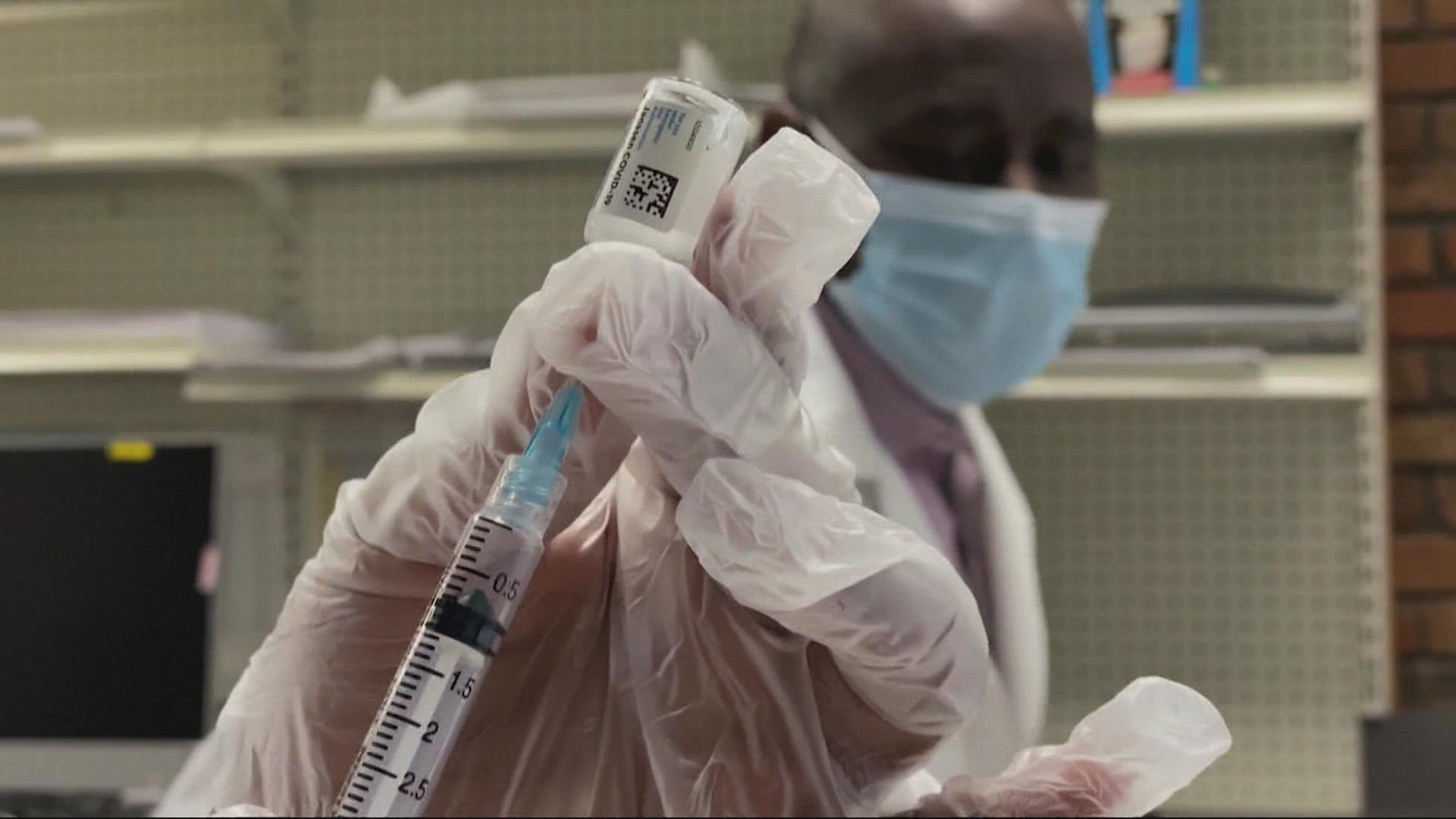PORTLAND, Ore. — Most state employees in Oregon and Washington, as well as all K-12 school staff and health care workers, must be fully vaccinated against COVID-19 by Oct. 18, or they risk losing their jobs.
RELATED: Oregon K-12 school staff and health care workers required to get vaccinated against COVID-19
But there are two exceptions to that rule — those who have approved exemptions for medical or religious reasons.
So what qualifies as a medical or religious exemption and what information will employees need to provide in order to request one?
THE QUESTION
What are the approved exemptions when it comes to the COVID-19 vaccine?
THE SOURCES
- COVID-19 Vaccination Rule for Oregon Health Care Staff
- COVID-19 Vaccination Rule for Oregon School Staff
- COVID-19 Vaccination Requirement for Washington
- Taylor Duty, attorney specializing in employment law
- Governor Jay Inslee's Office
THE ANSWER
Employees who are required to get the COVID-19 vaccine can request a medical or religious exemption.
WHAT WE FOUND
People have a right to seek medical and religious exemptions under federal law.
In Oregon and Washington, employees seeking a vaccine exemption will have to fill out a request form which their employer will then review.
Employers are not required to accept all exemption requests at face value, according to experts we spoke to. Taylor Duty, an attorney at JJH Law who specializes in employment law, said employers can ask for additional information if an exemption has been requested.
"An employer does have a right to ask some follow-up [questions] about the reasonable accommodation that the employer may be providing in order to allow that person not to get vaccinated,” said Duty.
Duty said it's important for employers to take exemption requests seriously, otherwise they could be violating the law, but even those who are granted an exemption could see their job change.
Oregon's vaccination requirements specify that employers must take "reasonable steps" to ensure unvaccinated employees are not contracting or spreading COVID. That means unvaccinated individuals, even those with an approved exemption, could see their role change.
So what qualifies as a medical or religious exemption?
MEDICAL EXEMPTIONS
According to the Oregon Health Authority's COVID-19 vaccination requirements for school staff and health care workers, a medical exception means "that an individual has a physical or mental impairment that prevents the individual from receiving a COVID-19 vaccination."
Those seeking a medical exemption will need to fill out this form and have it signed by a medical provider certifying that they should not receive the COVID-19 vaccine.
The form asks medical providers to answer a number of questions attesting to the employee's medical needs, including:
- What is the medical condition that prevents them from receiving the COVID-19 vaccine?
- Is the medical condition temporary? If yes, what is the expected duration?
- Please describe how this medical condition impacts their ability to receive the COVID-19 vaccination.
If a medical provider is seeking an exemption for themselves, they are not allowed to fill out the form on their own behalf.
The medical conditions that qualify for an exemption may vary depending on the employer. In some instances, those with vaccine allergies or specific underlying health conditions may be advised to wait to get a COVID vaccine.
For the majority of those with underlying medical conditions, the COVID-19 vaccines can be administered, according to the CDC.
Those seeking a medical exemption in Washington should talk to their employers directly. Exact forms and questions may vary depending on the school district or health care system.
RELIGIOUS EXEMPTIONS
The guidelines for religious exemptions leave a bit more room for interpretation. According to OHA's vaccine rules, a religious exception means "that an individual has a sincerely held religious belief that prevents the individual from receiving a COVID-19 vaccination."
In Oregon, employees seeking a religious exemption will need to fill out this form, describing the religious belief and how it prevents them from receiving a COVID-19 vaccine.
Again, employers have the right to review all exemption requests. Portland Public Schools Chief Human Resources Officer Sharon Reese told KGW that's what Oregon's largest school district intends to do.
"We will be reviewing that each religious exemption that is requested is based on bona fide beliefs,” Reese said.
In Washington, employees will also fill out a form to request a religious exemption. The questions on the forms may vary by employer but the exemption guidance for state agencies, provided by Washington's human resources division, shows what type of questions may be asked.
Washington State Department of Transportation (WSDOT) employees requesting a religious exemption must answer two questions:
1. You assert that you have a sincerely held religious belief or religious conviction that prevents you from receiving the COVID-19 vaccine. (Yes/No)
2. You affirm/agree that you have never received a vaccine or medicine from a health care provider as an adult. (Yes/No)
A spokesperson for Governor Inslee's office said the religious exemption process is meant to consider "appropriate details regarding how the religious belief prevents the employee from taking the vaccine."
Inslee's office said the process is meant to be interactive and employees will have a chance to appeal a rejected request in many circumstances.
Above all, Duty says it's important for employers to engage in that interactive process, especially when it comes to religious exemptions.
"I wish we could say there's one checklist you can go down to determine whether a religious belief is sincerely held but that isn't really the case. It very much needs to be a conversation between the employer and the employee," said Duty.
Do you have something you want us to Verify? Email us at Verify@kgw.com

